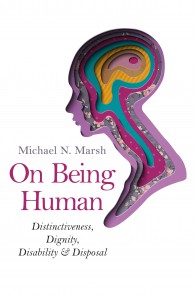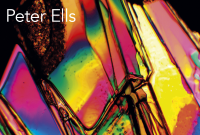
What comes into our minds when thinking about consciousness? Is it, to quote a lesser-known remark (made in completely different circumstances) by Sir Winston Churchill – ‘a riddle wrapped in a mystery inside an enigma’?
In piercing the gloom, I prefer the phrase ‘being conscious’ – indicating that consciousness is not an additional appendage of higher living individuals. Likewise, John Zizioulas, the Orthodox theologian, reminds us that as humans, we don’t just have life attached to our bodies: we are living beings. In a similar vein, we are conscious beings – being conscious.
Being conscious, viewed as having full conscious-awareness of ourselves and the environment we daily inhabit is the essence of living – for humans and other animals, in contrast to being ‘non-conscious’, or ‘unconscious’ – for example, coming round from a faint, having nitrous oxide during childbirth, being ‘knocked out’ in the boxing ring, or recovering from a general anaesthetic. Viewed in that way, consciousness becomes a little more tractable and understandable. Neither should we forget our innate ability to render ourselves ‘out of this world’ in popular speech, every night as we fall asleep and awaken the next morning. That points to mechanisms within the brain capable of bringing about rapid alterations in levels of consciousness, or what neurophysiologists call ‘state control’. Furthermore, notice how the switchover can be instantaneous – one moment we are ‘out for the count’, and the next, fully ‘with it’.
Publication Date December 11th
A study of human beings – our origins, status, beginnings and endings. It asks what is entailed in being human?
Michael Marsh held the Readership in Medicine, Manchester University and was Consulting Gastroenterologist at Salford Royal Hospital: in addition, he was Professor of Intestinal Immunopathology, Ankara University Medical School, Turkey. He is known worldwide for his Classification regarding the immunopathological stages in the development of the celiac lesion. He returned to Oxford with a degree in Theology and began writing his D.Phil thesis on Near-Death & Out-of-Body experiences, published by OUP, 2010. Since then, he has been interested in the ethical outcomes of medical practice and biomedical research. Professor Marsh lives now in West Oxfordshire.
Categories:
0 comments on this article












